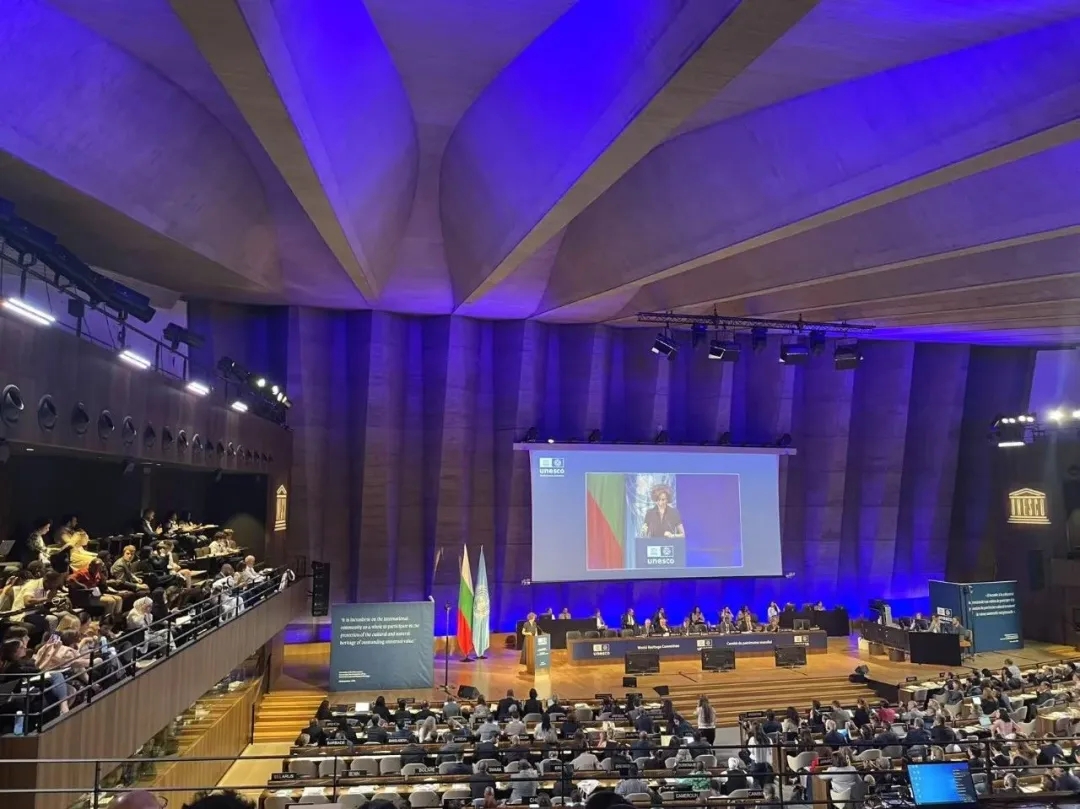
UNESCO Headquarters in Paris, France
The 47th session of the World Heritage Committee (July 6-16) will open on July 6, 2025 (Sunday) at UNESCO headquarters in Paris, France. The conference will be held on Monday, July 7th, and the agenda will be reviewed as the first topic. For more information, please refer to the conference's official website:
https://whc.unesco.org/en/committee
The President of the conference is Professor Nikola Nenov (Bulgaria), the reporter is Ms. Joel Busiana (Rwanda), and the Vice Presidents of the conference come from Belgium, Mexico, Qatar, the Republic of Korea, and Zambia. The committee will review and discuss various thematic initiatives, activity reports of the World Heritage Center, advisory bodies (International Council on Monuments and Sites, International Centre for the Conservation and Restoration of Cultural Heritage, World Conservation Union), and reports from UNESCO category II centers such as WHITR-AP over the next 10 days. The Committee will discuss the protection and management of the world heritage sites that have been included in the The World Heritage List, as well as the nomination projects that apply for inclusion in the The World Heritage List.
The 21 member States of the Commission are: Argentina, Belgium, Bulgaria, Greece, India, Italy, Jamaica, Japan, Kazakhstan, Kenya, Lebanon, Mexico, Qatar, the Republic of Korea, Rwanda, Saint Vincent and the Grenadines, Senegal, Türkiye, Ukraine, Vietnam and Zambia.
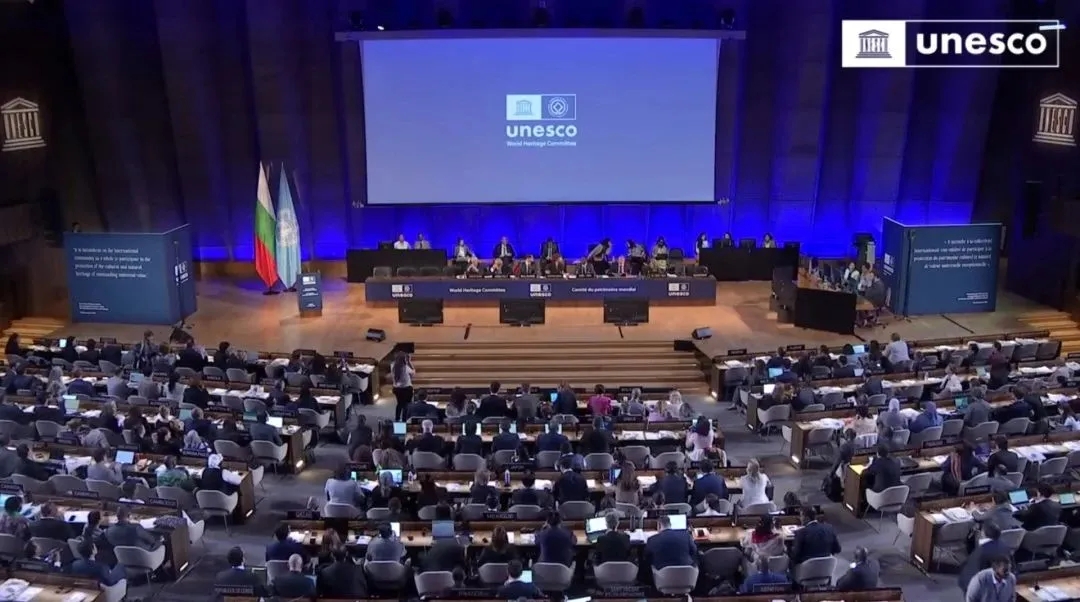
At the 47th World Heritage Committee Meeting
opening remarks
At the opening ceremony, Director General Audrey Azoulay delivered an important opening speech and defined heritage as "our common treasure and a beacon of hope for humanity". Faced with the backdrop of 196 contracting states, covering 4.8 million square kilometers and over 1200 World Heritage sites, Azul é emphasized the urgent global challenge: currently, one-third of natural heritage sites and 20% of cultural heritage sites are facing severe climate impacts, and heritage cities in the Mediterranean region are particularly vulnerable.
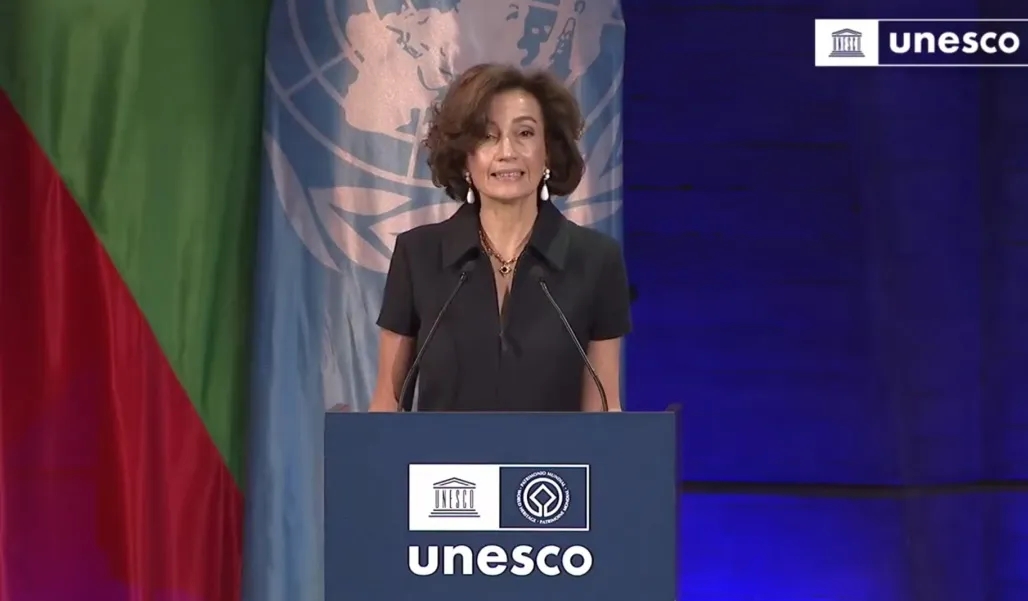
Opening Speech by Director General (GD) Audrey Azoulay
She highlighted the georeferencing tools deployed by UNESCO for real-time risk monitoring and the digital platform "Dive into Heritage" supported by Saudi Arabia, calling them key innovative measures to address the global heritage conservation crisis. Azoulay also emphasized UNESCO's equity oriented agenda, including capacity building programs in 27 African countries without heritage sites, as well as post conflict recovery efforts in Mosul (reconstruction costing $115 million) and Gaza (damage assessment using satellite imagery). The Director General finally quoted the famous saying of philosopher Julia Kristeva, stating that "everyone is unique, and it is this uniqueness that constitutes the essence of human nature", and called for the adoption of "practical multilateralism" to address climate change, war, and inequality.
Keynotes
Bulgarian Minister of Culture Marian Bachev also delivered a keynote speech, elaborating on the two top priorities for global heritage conservation.
Firstly, he advocates youth empowerment as the cornerstone of intergenerational responsibility and asserts that young people must become active guardians of cultural memory, thereby passing on a sense of belonging and identity to future generations. While emphasizing the dilemma of youth outflow in Bulgaria, he also proposed specific measures to address it: establishing a transnational youth network, skill building projects, and internship organizations to retain young talents in the field of heritage work. He further emphasized that digital tools such as 3D scanning and virtual reality (VR) should be the driving force for empowering young people to lead heritage conservation - as evidenced by Bulgaria's "Digital Black Sea Archaeology" project, which involves students in underwater site data mining, while experts are responsible for interpreting and interpreting historical codes.
Secondly, Bachev elaborated on a strict ethical driven approach to artificial intelligence and declared that "artificial intelligence can only be a tool, not the ultimate solution to problems. It cannot nurture those 'cultural guardians' who take the responsibility of inheriting the torch. ”Although Marian acknowledges the role of AI in risk monitoring, such as climate threats or conflict damage, he insists that the final decision must be controlled by human experts - a stance that contrasts sharply with the technology centric model in Western Europe. This concept is also directly reflected in the "Guidelines for the Application of Artificial Intelligence in the Field of Heritage" drafted by Bulgaria, which was also discussed in an ethics workshop conducted at the same time.
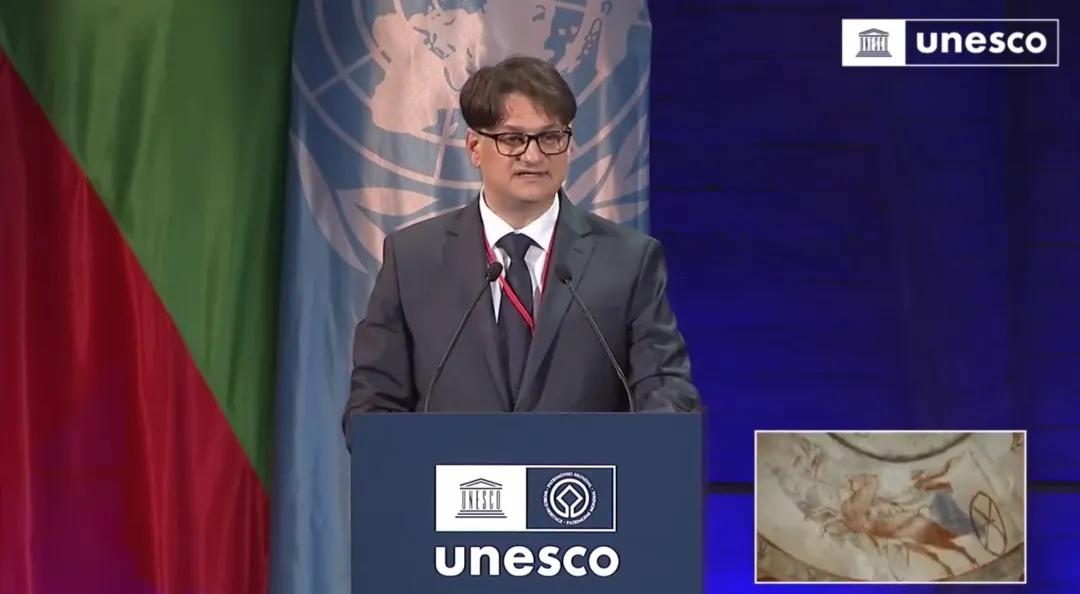
Bulgarian Minister of Culture Marian Bachev delivers keynote speech
Meanwhile, in addition to the conference agenda, Bulgaria has also planned a variety of cultural projects to showcase its achievements in heritage inheritance and protection.
Opening Summary
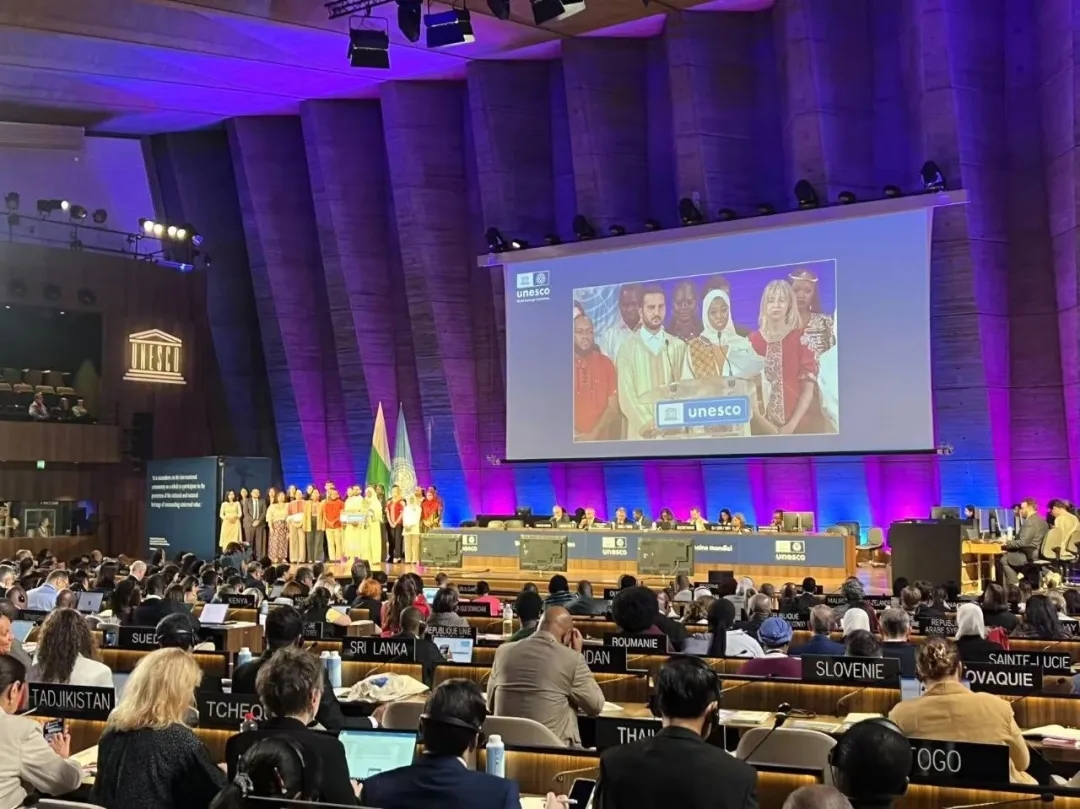
Message from the Youth Forum on World Heritage in 2025
As quoted by Director General Azoulay, "Each of us is unique, and it is this uniqueness that constitutes the essence of human nature." (In the words of philosopher Julia Kristeva) From the preservation of heritage under climate threats to the autonomy of guardians in the age of technology, the 47th session of the World Heritage Committee will demonstrate the enduring power of heritage: like a shield of protection in times of crisis; Among humans, it is like an endless painting.
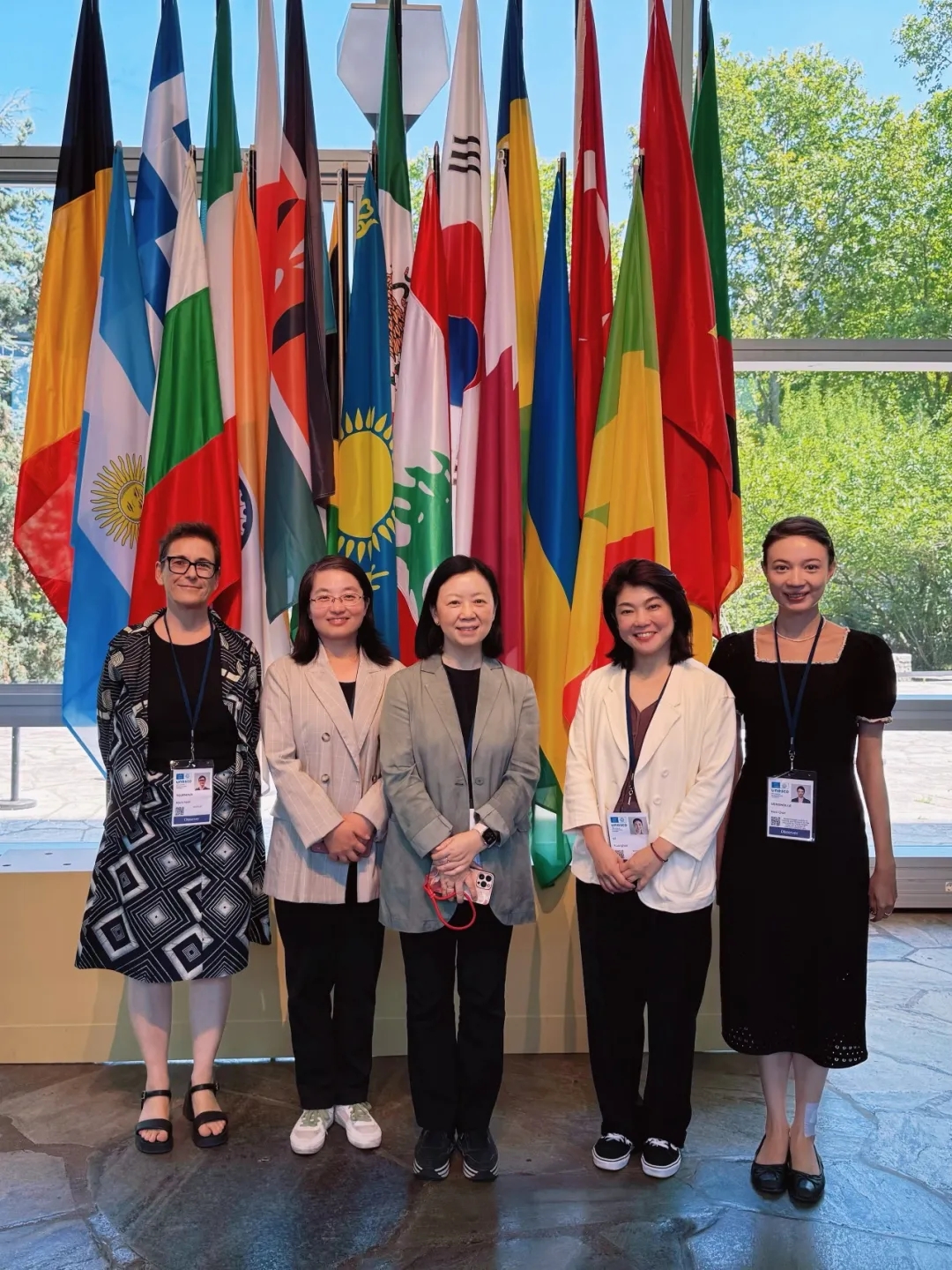
Delegation of the Asia Pacific Heritage Center
